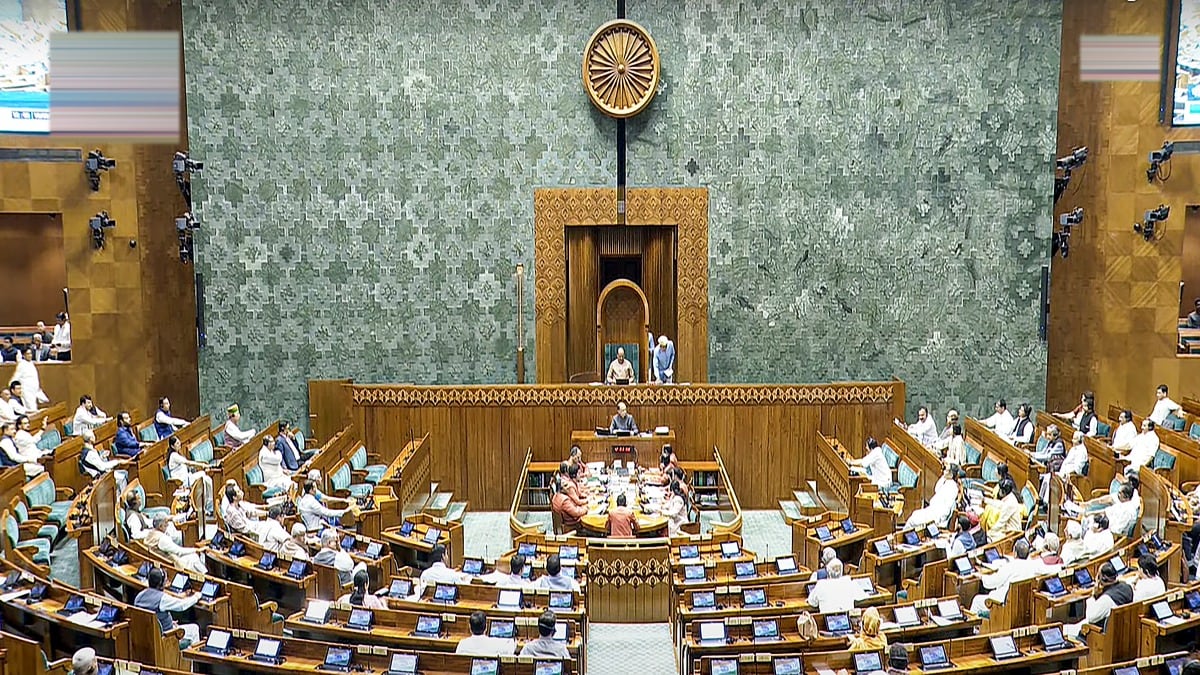Waqf Bill Clears Lok Sabha With 288 Votes In Favour, 232 Against


New Delhi:
The Waqf Amendment Bill sailed through the Lok Sabha early on Thursday after a marathon 12-hour debate that saw the government and the Opposition go toe-to-toe on the contentious bill well-past midnight. The debate was intense but the numerical strength of the government had the last word. Around 2 am, the bill was passed by 288-232 votes.
The proposed legislation — which will be tabled in Rajya Sabha later today — aims to amend the 1995 law governing Waqf properties.
But the contentious provisions in the amended bill include mandatory inclusion of two non-Muslim members in the Central Waqf Council and Waqf Boards. There is also the stipulation that individuals who practiced Islam for at least five years only can donate properties to Waqf. Also, under the proposed law, government property identified as Waqf will cease to belong to it and the local Collector will determine its ownership.
The Opposition — which contended that the Joint Parliamentary Committee set up to examine the Bill did not consider their suggestions — argued that the bill was unconstitutional.
The Congress declared that the government was trying to “defame (and) disenfranchise minorities” and staging an “4D assault on the Constitution”.
AIMIM chief Asaduddin Owaisi, in a symbolic protest, said he was “tearing up the law like Mahatma Gandhi did” with British law in South Africa.
The government contended that the bill was about property and its management, not religion. Huge lands and properties have been taken over by Waqf — aided by the Congress’s appeasement politics. There were largescale irregularities that did not allow Waqf property to benefit women and children, which the amended law would do. Also, the Waqf bill, the BJP said, was developed after consulting a large section of people and it has received the support of non-Muslim minorities.
Speaking in favour of the bill, Union minister Amit Shah presented a long list of properties that he said were given for Waqf. The list included land belonging to temples, other religions, the government and others.
“Properties in (Delhi’s) Lutyens zone went to Waqf, and they started taking over government land… In Tamil Nadu, a 400-year-old temple property was declared as Waqf’s. Land for a five-star establishment was given to Waqf for 12,000 a month… Several properties belonging to different religions were declared as Waqf property, including Chandra Shekhar Azad Park in Prayagraj,” he said.
“You cannot donate someone else’s property. You donate something which is yours,” he said.
While introducing the bill, Union minister Kiren Rijiju cited a case going on since 1970 in Delhi involved several properties, including the old Parliament building.
“If we had not introduced this amendment today, even the building we are sitting in could have been claimed as Waqf property,” he said.
Pointing fingers at the Congress, Mr Shah said if there had not been an amendment in the Wakf Act in 2013, there would have been no need to bring this legislation.
“In 2013, the extreme Wakf law was made overnight for the purpose of appeasement. As a result, 123 properties in Delhi’s Lutyens zone were handed over to the Wakf just 25 days before the elections,” he said.
He also denied that non-Muslims will be included in the Wakf board, saying “Those who take care of religious property, in that board, non-Muslims won’t be in that. We don’t want to even interfere there. The Opposition is trying to scare the minority and build their vote banks”.
Spirited Attack From Opposition
Congress’s Gaurav Gogoi, who delivered a lengthy rebuttal to Mr Rijiju, said the bill is an “assault on the Constitution… The aim is to dilute the Constitution, defame and disenfranchise minorities… divide Indian society”.
“In 2023, four meetings of the Minority Commission were held, and yet, there was no mention of the need for a Waqf amendment bill. I ask the government – was this bill drafted by the Minority Affairs Ministry or some other department?” he added.
Shiromani Akali Dal MP Harsimrat Kaur Badal launched a fierce attack on the Centre, accusing it of trying to split the minorities.
“The party which does not have a single Muslim member (in Parliament), how is it that are remembering the Muslims today? The party which relies on polarisation, how did they remember the Muslims today?” she said, taking a swipe at the BJP.
“Twenty seven percent of the (Waqf) properties are in Uttar Pradesh, which will vote after 1.5 years. You have demolished our historic gurudwara and developed Ayodhya. Had your intention been good then you would have included a Muslim member in the Ayodhya committee. You are breaking every minority. You are the Tukde Tukde gang,” added the MP, whose party parted company with the BJP during the farmers’ protest.
Provisions Of Amended Bill
According to the Waqf Amendment Bill, trusts created by Muslims under any law will no longer be considered Waqf. Only practicing Muslims (for at least five years) can dedicate their property to Waqf, it says, restoring pre-2013 rules. Also, women must receive their inheritance before Waqf declaration, with special provisions for widows, divorced women and orphans.
The bill also proposes that an officer above the rank of collector will investigate government properties claimed as Waqf.
In case of disputes, the senior government official will have the final say on whether a property belongs to Waqf or the government. This replaces the existing system where such decisions are made by Waqf tribunals.
Also, the bill proposes that non-Muslim members will be included in the central and state Waqf boards for inclusivity.
Women must receive their inheritance before Waqf declaration, with special provisions for widows, divorced women and orphans.
The All India Muslim Personal Law Board has said it will challenge the Waqf (Amendment) Bill in court. “We will organise programmes across the country just like farmers did. If needed, we will block roads and take all peaceful measures to oppose the bill,” said the law board spokesperson Mohammad Mohsin.



